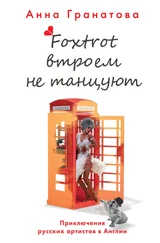The Aeron chairs were nice. Leo was the author of a game called Rolling Death, staged in the outdoor play zone, in which a staffer, “restrained” in an Aeron chair by the kids, would zoom maniacally around the OPZ yelling, ideally, “I am Death. I touch you, you die,” while the kids screeched and careened, addled with joy and running with snot, and dodged the caroming desk chair. Leo wasn’t the only one who played it now either. Another staffer named Lisa did a great Rolling Death, as did a tiny Dominican lady named Cecilie, who laughed more wildly than the children as she zoomed — they raced from her as if from a plague. The game was a desperate favorite of just about all the children at Brand-New Day, though when he played with the twos-and-threes, Leo zoomed more slowly. Just the whisper of maybe playing it could get fourteen five-year-olds to collect from the floor a morning’s worth of paper scraps and gluey cotton balls.
The management was in a bind re Leo and his methods. He was sometimes a liability, especially when prospective parents were touring the facility. Why were the threes-and-fours listening to the Clash? Why were the fours-and-fives engaged in what appeared to be a mock trial of a stuffed gorilla on a Big Wheel? Sharon claimed to have no problem with Rolling Death per se (she was quite fond of per se; also at this point in time ), but she wanted the name changed.
“How about Huggy Monster?” she suggested to Leo once at the seven-thirty goals meeting.
“Not as much at stake in that case, I think,” he said.
The truth was that the outdoor play zone was actually a covered parking lot that backed up to an enormous freeway pier and was surrounded by chain-link and surfaced in orange matting. A few play structures couldn’t dent its overall vibe of incarceration. When only the twos-and-threes milled outside in heavy diapers, or when a sparse crew of toddlers fought for possession of two blanched pedal cars, the outdoor play zone was truly grim and resembled a transfer point for tiny high-value detainees. Only a game that got the kids whooping, like Rolling Death, could transform the OPZ into the squealing theater that made parents certain they had done right to choose Brand-New Day, despite its cost, which was more than pretty much all of them had ever thought they would spend on child care.
And the parents, once they had interacted with Leo a few times, liked and trusted him. The mothers especially. They saw that their Lukes and Lolas ran to him first thing every morning. They watched him sit in tiny chairs and murmur to children who were protesting their parents’ departure. None of this wide-eyed condescension; no Is that your bear? shit. Rather, an intense and sincere interest. He rinsed their soiled clothes and hung them to dry over the sink; he slipped their best artwork into manila envelopes so that it would not get crumpled. And the parents liked the way he filled out the daily journal sheets that went into each child’s mailbox at the end of the day.
TODAY WE PLAYED WITH ____________. Blocks. Who woulda thunk? Leo might write. Or, for TODAY WE ATE ____________, he’d riff on the day’s offerings. Sometimes he’d produce a critique: Fish sticks flaccid, but juice boxes especially cold. Sometimes he’d mash up imaginary combinations, aiming for gross, as a child would. Orange Roughy and Band-Aids. Mousse de Purell. Baby Carrots in Rubber Cement. Or he’d pair a wine with the meal: Riz Brun. Petits Pois. Château Latour 1959.
But then, beneath those idiotic prompts, in the lower half of the page, he’d add a few sentences about the weather or a reference to current events, something to peg that piece of paper to the adult world. Or maybe something about the mood in the room that day. Carla’s vomiting in the sink transfixed the fours-and-fives and put them off snack. Or, The squall that came at midday soothed everyone here. Rain on windows trumps contested sock monkey.
Then he’d copy that master thirty times, standing over the copier as proud and eager as Hearst before his presses. Afterward, he’d add child-specific notes to a few of the editions, and then he’d distribute them among the mailboxes at the front. He liked to see the mothers and fathers jam these pieces of paper in their pockets and bags. He hoped that their lives would be improved some small amount by his words, by what they read about their children, for whom they toiled. Often he saw these notes crumpled and thrown away unread; there was a recycling bin next to the front door. Some parents had probably never once read a daily journal sheet.
That was okay. Leo was aware that taking pride in such a thing was ridiculous — that to do so exposed him to ridicule. But since everyone pretended to believe that you should take pride in whatever you do, most people were caught by something in Leo.
That happy fool at day care is referring to Afghanistan today, a man might say to his wife from the kitchen. And she to him, sweeping Cheerios from the sofa: It’s preschool, you idiot. What’d he say?
When coworkers chided Leo about his devotion to the daily journal sheets, he tried to take it in stride. But really. Why did grown-ups find it necessary to tease fellow citizens who actually gave a shit?
“Enter the aphorist,” Eric would say whenever Leo came into the break room. Eric was the only other penis-laden BND employee and he seemed to not quite understand what an aphorist was, or maybe he hadn’t actually read the daily journal sheets, because Leo’s reportage was anything but aphoristic. Whenever he was reminded that it was largely fools and galoots who ran the world, Leo resorted to subvocal mantric recitations of the true-yet-banal moral directives that he had picked up from the few AA meetings he had ducked his head into after the blacked-out drive home: Reserve Judgment. My Side of the Street. Principles Before Personalities.
But why did it not occur to any of his colleagues that not enough was being written about these kids? That children — even these economic-pinnacle children — were cashless and unlettered, after all, and if some decent record was to be kept of their day, someone would have to do it for them? Leo didn’t consider his account even adequate, really. So much was going on around him that escaped his notice. They were a flock he watched over; corralled, actually. He was a subcontracted shepherd, and his authority over them came from his greater strength, from the fact that he could quickly extract and, if need be, carry and, if need still be, restrain a child swinging a Wheat Thin like a shiv. The kids were hardly ever offered a choice — a real one, anyway — and Leo pretty much had to leave them alone to see them express preferences and drives. In these moments, or when he knelt among them silently observing a quarrel or a peacemaking gesture, he was aware of their society. But mostly, he was as clueless as a towheaded television reporter in Tahrir Square, and he did not hold himself up as a toddler sage or anything.
Leo made certain not to slack off in the other areas of the job. His coworkers could count on him to do his fair share or more of the daily labor required to run the floor at BND. The job consisted largely of light to medium housework and physical interventions in minor civil disputes. Leo was good at it, and he was well liked by pretty much everyone at BND.
Until Sharon came around. She started in on him at once about the lateness. Can’t you see that no one else around here cares? he wanted to say to her. I’m fifteen minutes late and you’re thirty pounds overweight. Can’t we just call it even? He did not say this. He loved his job and feared that Sharon was looking for cause to fire him. But really: No one else cared that he was late. Leo was almost always the last to leave. And there were about nine doors to check and lock and three notebooks to sign out of before the last to leave could leave. Once a week it was Leo who would stay late to receive the cleaners, a spectral team of Tyvek-suited Mexicans. A day-care facility was light duty for these guys, probably. Leo imagined that they usually cleaned up after suicides and fires.
Читать дальше












